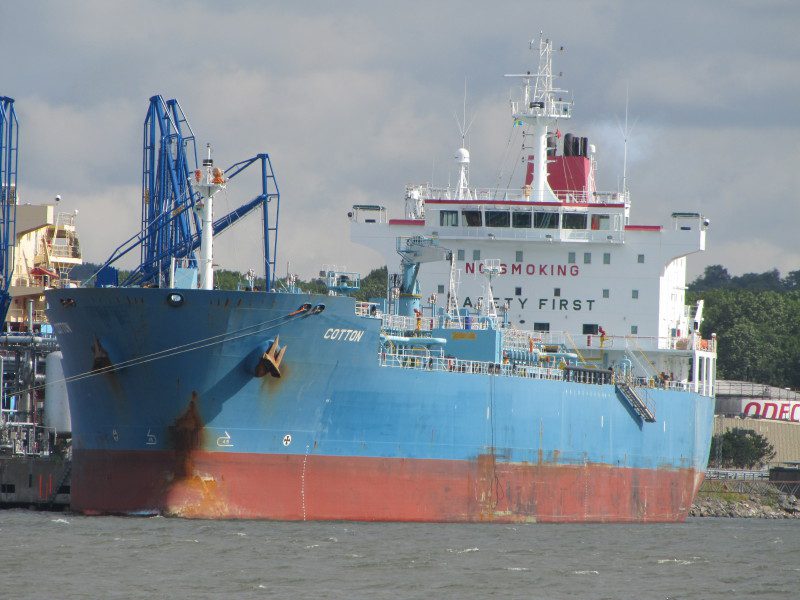Piracy Reporting Centre: Singapore Straits Emerge as Piracy Hotspot
Global piracy and armed robbery incidents against ships have risen sharply in the first quarter of 2025, with a notable 35% increase compared to the same period last year. The...

File image by Lennart Rydberg
![]() By Jonathan Saul and Jean-Rovys Dababy
By Jonathan Saul and Jean-Rovys Dababy
LONDON/LIBREVILLE, July 17 (Reuters) – Pirates have hijacked an oil products tanker with 24 crew onboard off the Gabon coast, the vessel’s operator said on Wednesday, the most southerly in a spate of raids in West Africa’s Gulf of Guinea shipping zone.
A Gabonese naval source said the ship was now believed to be in Nigerian waters. Officials in that country were not available to comment on the report.
Pirates are thought to have boarded the Maltese-flagged Cotton tanker, carrying a partly loaded cargo of fuel oil, on Monday near Gabon’s Port Gentil in the first reported attack in that region in the past five years, Turkish operator Geden Lines said.
“The company is in contact with the families of the 24 Indian crew members on board and the appropriate authorities have been contacted,” Geden Lines said in a statement.
The Gulf of Guinea, which includes Nigeria, Ghana and Ivory Coast as well as Gabon, is a major source of oil, cocoa and, increasingly, metals for world markets. Unlike the Horn of Africa, international navies are not actively engaged in counter-piracy missions in the region.
“The attack occurred around 200 nautical miles (NM) further south than the previous most southerly attack,” security firm AKE said. “It therefore marks a significant expansion of the geographical range of Gulf of Guinea piracy.”
“It also demonstrates the regional nature of the illegal fuel trade, the supply of which tankers such as Cotton are generally hijacked for,” it said.
A Gabonese naval source, who asked not to be named, said the tanker was attacked by 12 to 15 gunmen armed with AK-47 assault rifles.
“The ship that was captured is now off the coast of Nigeria. It has been identified by our coast guard,” the source said.
Unlike waters off the Horn of Africa, where ships can move past at high speed with armed guards on board, many vessels have to anchor off West African coastal nations, with little protection, making them a soft target for criminals.
Earlier this week, the International Maritime Bureau, a shipping watchdog, warned that the Gulf of Guinea, known for attacks on oil industry vessels and the theft of gas oil, had seen a surge in kidnappings at sea this year, with a wider range of ship types being targeted.
“There continues to be significant under-reporting of attacks – a phenomenon highlighted by the IMB year-on-year. This prevents meaningful response by the authorities and endangers other vessels sailing into the area unaware of the precise nature of the threat,” the IMB said in a statement.
Last month, the Joint War Committee, which groups syndicate members from the Lloyd’s Market Association as well as representatives from London’s insurance company market, added Togo to its list of high risk areas for merchant shipping, which already includes Nigeria and Benin, reflecting the worsening risks. (Editing by David Lewis and Angus MacSwan)

Sign up for gCaptain’s newsletter and never miss an update

Subscribe to gCaptain Daily and stay informed with the latest global maritime and offshore news


Stay informed with the latest maritime and offshore news, delivered daily straight to your inbox
Essential news coupled with the finest maritime content sourced from across the globe.
Sign Up